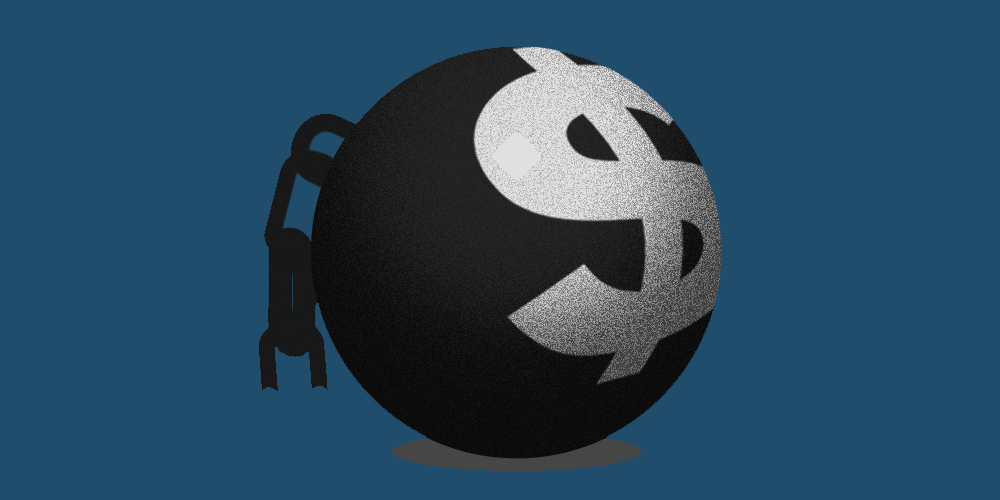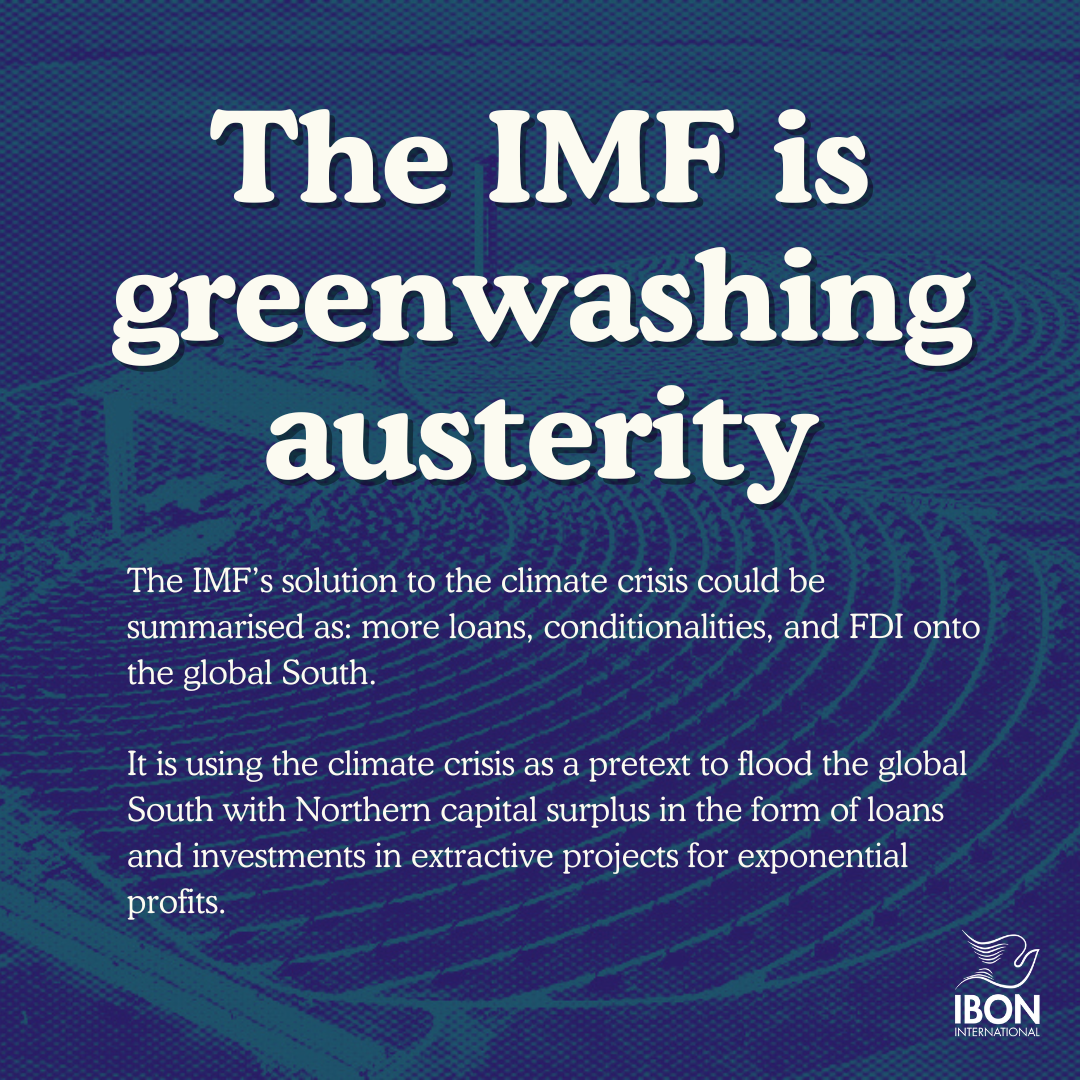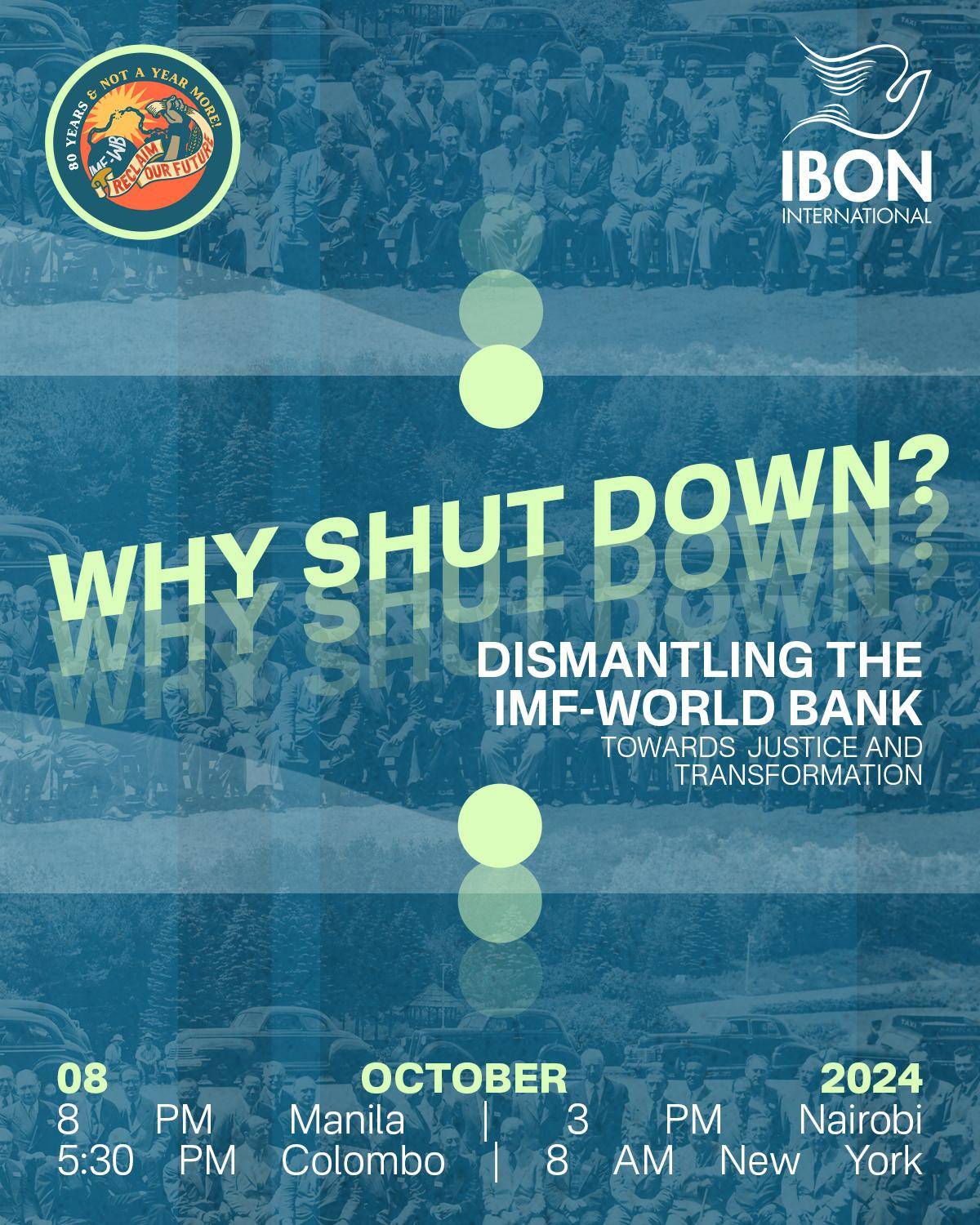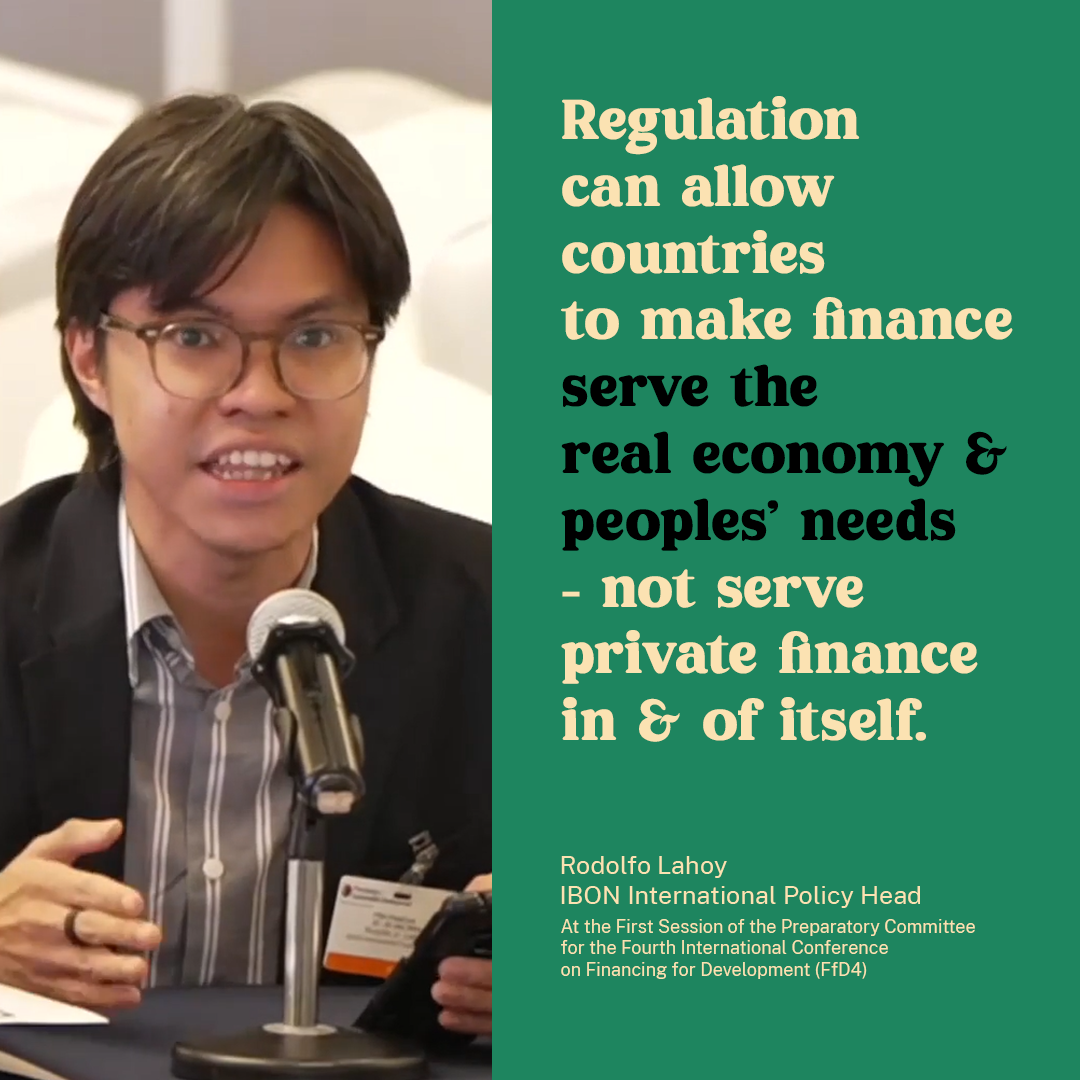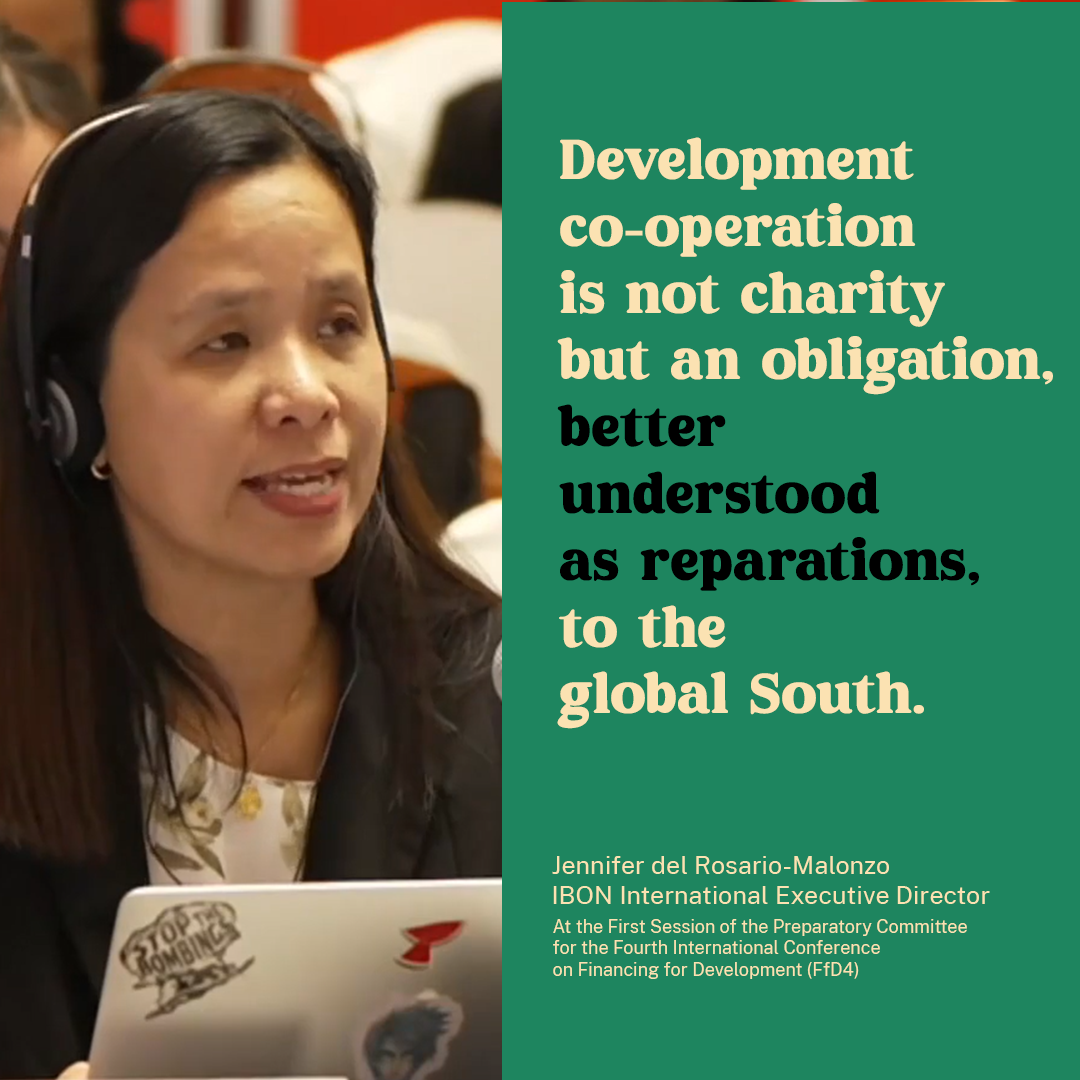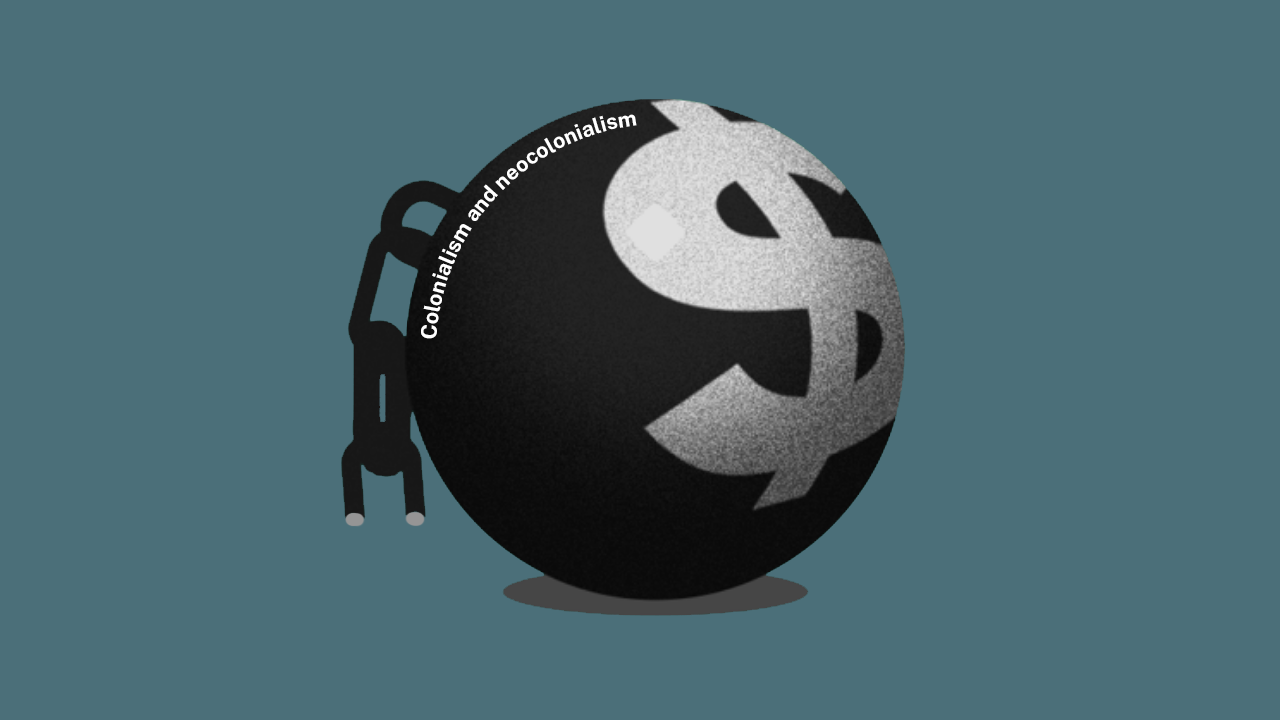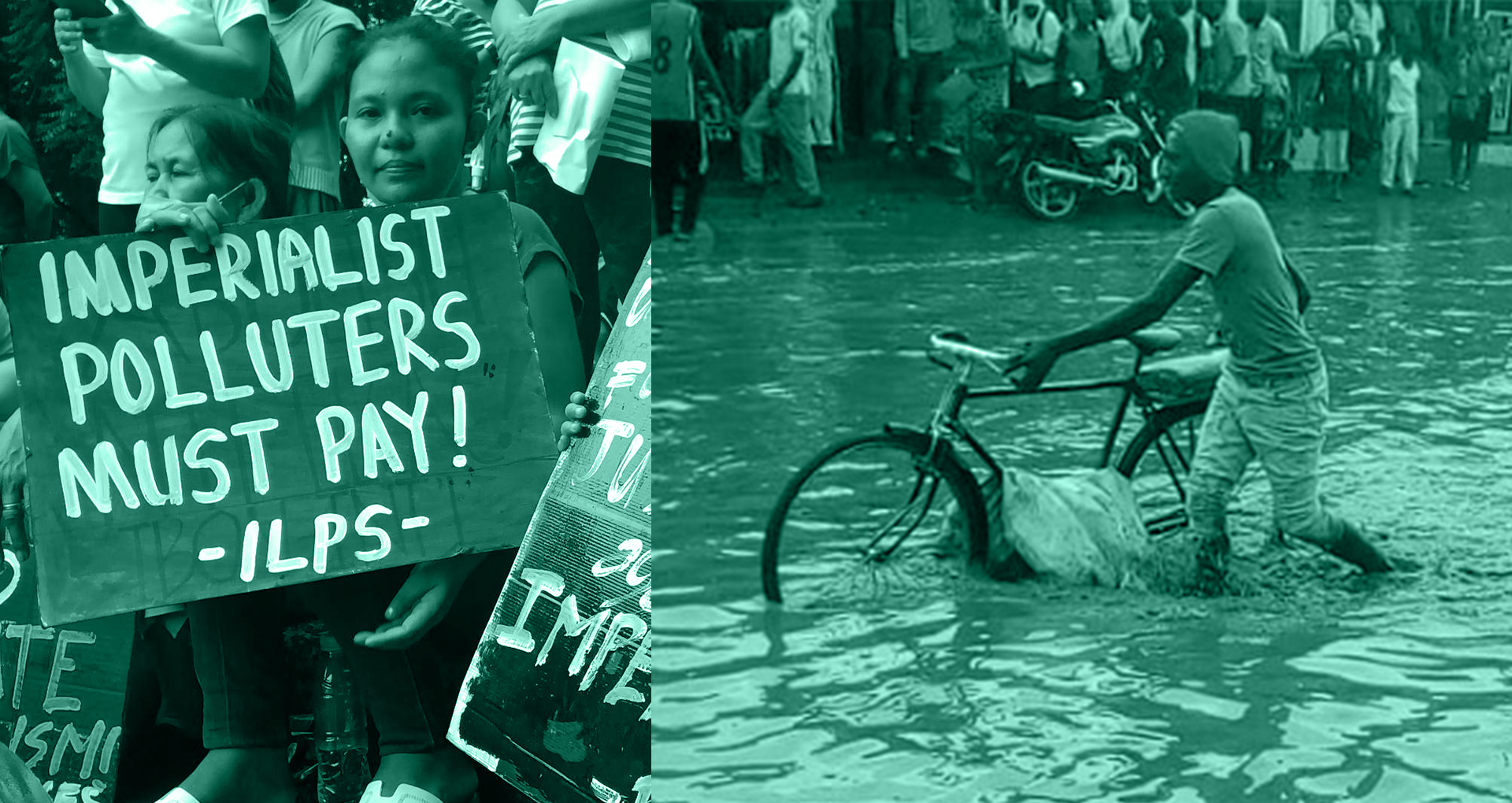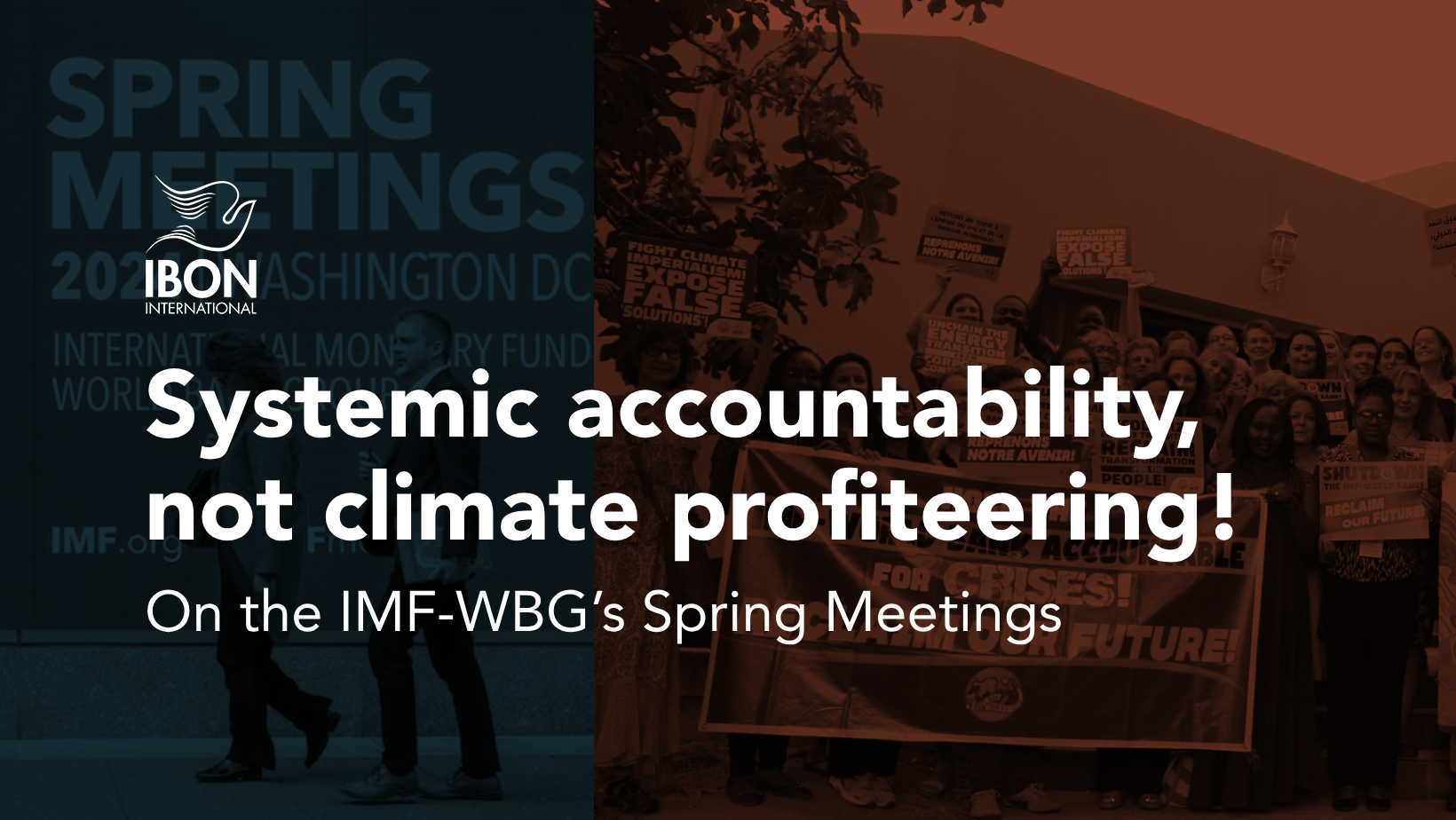Photo: “Deaths caused by COVID-19 in selected European countries per 1 million inhabitants.” Wikimedia Commons CC BY-SA 4.0
Regional Dispatch – IBON Europe
20 April 2020
Without drastic wealth-redistribution measures such as increased corporate taxation and taxes on extreme wealth, the common people will be forced to shoulder the cost of this recovery. Finally, as wealthier European countries look inward to secure their own economies, it is all the more important to amplify the need for more international cooperation and solidarity to poorer economies especially in the global South.
On 13 March, the World Health Organisation (WHO) declared Europe as the centre of the Coronavirus Disease (COVID-19) pandemic. At this point, more than a month has passed since the WHO declared the COVID-19 outbreak as a global public health emergency. Yet, many European countries still scrambled to put together appropriate responses.
Of the top 10 countries with the highest number of deaths, seven of these are in Europe, all of which belong to the Europe Union/European Economic Area and United Kingdom (UK). Italy and Spain are the worst hit, with 165,155 and 177,644 infected people and 21,645 and 18,708 deaths, respectively, followed by France, UK, Belgium, Germany and Netherlands.[1]
Responses: Too late, marked by austerity and conditionality
Many of the European countries dragged their feet even as Italy was already grappling with rapid community transmissions. Some earlier steps were social distancing measures such as a ban on large public gatherings and sporting events, the advice to stop shaking hands or other forms of contact, and the closing of schools and universities. But most of the stricter containment measures in European countries were only imposed beginning the second or third week of March, with Italy only starting its nationwide lockdown on 9 March and the UK not banning mass gatherings until the fourth week of March.
Containment measures vary from country to country…There are also contradictory approaches.
Incoherence
Containment measures vary from country to country. Many closed all establishments except those identified as essentials; banned public and private gatherings; restricted people’s movement to work, exercise and to purchase food or medicine (with appropriate physical distance); and enforced border controls. Several countries implemented movement restrictions such as Norway (12 March), Spain (14 March), Czech Republic (15 March), Austria (16 March), France (17 March), Belgium (18 March) and Greece (23 March).[2]
There are also contradictory approaches. Initially, the UK and Netherlands were partial to the “herd immunity” approach (founded on the idea that when many people become resistant to a certain disease, it becomes much harder for it to spread to the rest of the population).[3] However, the governments recalled these after widespread backlash from their citizens and experts, because it is still unclear how contagious the new coronavirus is or how it affects various demographics.[4] In addition, countries in Western Europe and the UK have big elderly populations.
Wearing masks in public or at work as a preventive measure was also not recommended in the early weeks of the pandemic to prevent shortages for health workers, but this has gradually shifted as Slovakia, the Czech Republic, Bosnia-Herzegovina and Austria have made it mandatory.[5]
While the WHO recommended to test widely, European countries approached this differently. Germany has implemented mass testing early on and now averages 50,000 tests a day for a population of 83.5 million, although critics say that many citizens are still not tested even if they exhibit symptoms.[6][7] Belgium, the European Union’s (EU) de facto capital, citing a lack of reagents or of necessity, has averaged only 4,000 tests a day for a population of 11.5 million and has been testing only medical staff and hospitalised patients with symptoms.[8]
Big firms continued operations
The policy on establishments’ operations has favoured big businesses. Despite the lockdowns, big corporations in both manufacturing and service sectors did not stop operations immediately, if at all. Italy and Spain declared closed its “non-essential” factories by the fourth week of March, but some regions and cities differed in enforcement.[9] Car and truck manufacturing in other countries remained operational for some time until big car manufacturers and other big firms decided to shut down their Europe factories or shift to essential production (e.g., to produce respirators or disinfectants). Meanwhile, there are other big companies that have been allowed to operate because they were able to fit themselves in the grey areas of “crucial sectors and essential services”.
Hardest for poor, undocumented, lower-paid workers
Despite how Europe is known for having social safety nets in place, lockdown measures, like elsewhere in the world, have had impacts on the poor–including the lower-paid workers, the self-employed, jobless, homeless, those in informal work, and undocumented migrants. In Spain, the rate of infection is higher in working class areas than in upmarket ones.[10]
Lockdown measures, like elsewhere in the world, have had impacts on the poor–including the lower-paid workers, the self-employed, jobless, homeless, those in informal work, and undocumented migrants.
Studies have shown that self-employed workers are more vulnerable than employees because of lack of unemployment benefits or a lower income replacement rate (or out-of-work income received through grants as a share of in-work income). Among employees, those on fixed-term contracts have a harder time in keeping their contracts, or in becoming eligible for sufficient unemployment insurance.[11] [12] In Spain and Italy, 25% and 17% of the population, respectively, are financially-poor households that either depend on incomes earned from activities affected by lockdowns and other containment measures, or are jobless.[13] Undocumented migrants who depend on daily payments for services such as house cleaning or child minding have lost their incomes and cannot find means to survive because of increased police controls and racial profiling. Volunteer-led organisations for the homeless and health charities have also reduced or stopped their services.[14]
Meanwhile, those who have lost their jobs temporarily and permanently are still not assured of their present incomes and livelihoods in the future. The European Trade Union Confederation estimates that some 15 million workers in Europe already lost their jobs.[15] Supermarket workers, garbage collectors, cleaners and delivery drivers can be exposed daily to the virus without proper protective equipment.[16] There is also no protection for non-standard (also known as platform workers, e.g., in Amazon, Deliveroo), irregular or informal workers, especially among undocumented migrants.[17] [18]
The EU’s bailout and quantitative easing
The EU has been scored especially by the hardest-hit countries for its lack of solidarity. Since January, member states have downplayed the COVID-19 crisis, made contradictory political choices, and have failed to promote a common strategy early on. The political leadership of the EU, the European Council, did not make crucial and decisive measures until the middle of March.[19]
On 10 April, EU’s finance ministers (also called the Eurogroup) have finally approved a €540-billion rescue plan that consists of: 1) around €240 billion for Eurozone member states through the European Stability Mechanism (ESM), a bailout fund that was set up during the EU’s debt crisis to impose fiscal tightening conditionalities on borrower countries; 2) liquidity measures (i.e. loans) for companies under the European Investment Bank; and 3) funding to EU member states of up to €100 billion to create or extend short-time work schemes via the European Commission’s new instrument, called the temporary Support to mitigate Unemployment Risks in an Emergency (SURE).[20][21]
The more controversial component of the bailout package is the use of the ESM, which imposes conditionalities to loans outside of spending for health care, cure and prevention-related costs related to COVID-19 (e.g.,for economic support). This was the result of a compromise between hardliner Netherlands, which stepped back from insisting macroeconomic reform conditionalities to access credit, and hardest-hit Italy and Spain, which agreed to delay the discussion on debt mutualisation, wherein the eurozone will be jointly responsible for a member country’s debt, through the so-called coronabonds.[22] The coronabond is a debt instrument backed by the European Central Bank that can be issued by member states to borrow money to help them deal with the Coronacrisis. Wealthier countries such as Netherlands, Germany, Austria and Finland are not amenable to coronabonds, due to the provision in the European Union Treaty (the Maastricht Treaty) that each member country is liable for keeping their finances in order.
On top of these, the European Commission has suspended some of EU’s rules on budget deficits and amended the EU rules on state aid that allow countries to bailout their big corporations that are affected by the pandemic, as seen in the plan of France for Air France-KLM and Airbus.[23] [24] The European Central Bank will also adopt a quantitative easing program by printing €1 trillion this year through the emergency purchase of €750 billion worth of bonds.[25] The EU is also set to update its still-pending Multiannual Financial Framework to take into account the cost of post-Coronacrisis recovery.
The health systems of many countries in Europe have been suffering from the impacts of neoliberal policies and austerity measures since the 2008 economic crisis.
Neoliberal vulnerabilities
The health systems of many countries in Europe have been suffering from the impacts of neoliberal policies and austerity measures since the 2008 economic crisis. Many countries have implemented neoliberal policies, including the regionalisation and privatisation of healthcare; and austerity measures along with the diversion of resources to other sectors including defence, which resulted in the reduction of hospitals’ and health facilities’ capacities and decreased health spending. In Italy, for example, regionalised healthcare, which was part of dismantling the national healthcare service, has prevented the country from coherently responding to the crisis.[26]
Declines in health expenditures as part of the responses to the 2008 crisis further weakened healthcare systems. Between 2008 and 2011, 17 out of the EU’s 28 member states have slashed their public spending on healthcare.[27] These measures have resulted in, or were in the form of, cuts in salaries, staff, training and research, social benefits, delays in investments, or introducing user charges. From 2011 to 2018, the European Commission has issued 63 recommendations for member countries to save on their health sectors.[28]
Thus, with this pandemic, health systems were caught flat-footed. The impact can be seen more starkly in Italy, Spain, the UK and Portugal, but also in wealthier countries. Personal protective equipment is lacking, which has contributed to the infection of health professionals. Health systems lack the capacity to take in the large number of patients at the same time, because of, among others, the gaps in hospital beds, ICU facility and personnel.[29]
Impacts and implications
Alongside extremely high deaths, the collapse of health systems, massive unemployment and increased poverty and insecurity, the toll of the Coronacrisis will bring a deep economic recession that is worse than the aftermath of the 2008 financial crisis.With it came an opportunity for governments and political leaders to exercise anti-democratic policies, violate human rights and perpetuate rightist politics.
A contraction foreseen
It is certain that the global economy will contract during and following this crisis. The International Monetary Fund, in its 15 April World Economic Outlook, has forecasted that the EU’s economy will contract sharply by -7.1% in 2020 from a meagre growth of 1.7% in 2019 (compared to forecasted global contraction of -3% and of -6.6% for the whole of Europe). Expectedly, Italy and Spain will be the hardest hit globally.[30]
With this contraction, the IMF has projected that advanced countries in Europe will record an unemployment rate of 9.2% in 2020 from 6.6% in 2019. High unemployment will definitely press down on the remaining social systems and worsen poverty of populations especially in southern and eastern Europe already reeling from indebtedness, arrears and low incomes.[31]
Rising authoritarianism
Responses to the Coronacrisis have shown how governments and other parties can turn the situation to their favour, most often in a show of rising authoritarianism and right-wing politics. Hungary, for example, has been dubbed as EU’s first dictatorship as its Prime Minister Viktor Orban gave himself indefinite power to rule by decree and to suspend existing laws without parliamentary approval. In the United Kingdom, a legislation has been passed that gives sweeping powers to border agents and the police, which could lead to indefinite detention and reinforce “hostile environment” policies against immigrants.
Far-right parties have been exploiting the situation to push for their political agenda. In Italy, Matteo Salvini has emphasised his anti-EU stance amid the lack of solidarity to Italy by the EU. In Belgium, far-right parties have used the crisis to stoke more anti-refugee and anti-communist sentiments.[32] In Germany and Spain, far-right parties have called for a suspension of the Schengen agreement, blaming open borders for the spread of the disease.[33]
It is imperative that the post-Coronacrisis recovery money will not be used to bail-out big corporations like what was done during the 2008 crisis, but instead be used to directly support, without conditions, those who were left jobless and heavily indebted, and to build responsive public health systems.
Game changer
It is imperative that the post-Coronacrisis recovery money will not be used to bail-out big corporations like what was done during the 2008 crisis, but instead be used to directly support, without conditions, those who were left jobless and heavily indebted, and to build responsive public health systems. Without drastic wealth-redistribution measures such as increased corporate taxation and taxes on extreme wealth, the common people will be forced to shoulder the cost of this recovery. Finally, as wealthier European countries look inward to secure their own economies, it is all the more important to amplify the need for more international cooperation and solidarity to poorer economies especially in the global South. #
***
[1] Coronavirus informatieportaal. Coronavirus in cijfers en kaarten. 15 April 2020. https://www.coronaviruscovid19.be/coronavirus-cijfers
[2] Juliana Kaplan, Lauren Frias and Morgan McFall-Johnsen. “A third of the global population is on coronavirus lockdown — here’s our constantly updated list of countries and restrictions.”Business Insider.9 April, 2020. https://www.businessinsider.com/countries-on-lockdown-coronavirus-italy-2020-3?r=US&IR=T
[3] Bevan Shields. “Dutch embrace ‘herd immunity’ as dire death warning prompts UK to change course.” 17 March 2020. https://www.smh.com.au/world/europe/dutch-embrace-herd-immunity-as-dire-death-warning-prompts-uk-to-change-course-20200317-p54arv.html
[4] Shaena Montanari. “An infectious disease expert explains why herd immunity probably won’t work in the fight against coronavirus.”Business Insider. 20 March 2020. https://www.businessinsider.com/what-is-herd-immunity-and-how-well-build-it-against-the-coronavirus-2020-3?r=US&IR=T
[5] Sam Jones. “Austria makes masks compulsory as protection debate shifts.” Financial Times.31 March 2020. https://www.ft.com/content/f68f3063-5024-4654-9389-bcc7ee1efd8e
[6] Ben Hall and Tobias Buck. “Germany conducting more than 50,000 coronavirus tests a day.” Financial Times. 2 April 2020. https://www.ft.com/content/6a8d66a4-5862-4937-8d53-b2d10794e795
[7] Phil Butland. “Please stop telling me that everything‘s fine in Germany.” 7 April. https://www.theleftberlin.com/post/please-stop-telling-me-that-everything-s-fine-in-germany
[8] “Coronavirus: Belgium looks to increase tests to 10,000 per day.”Brussels Times. 30 March 2020
[9] Giorgio Leali. “Italy closes all nonessential factories to halt spread of coronavirus.”Politico. 22 March. https://www.politico.eu/article/italy-closes-all-nonessential-factories-to-halt-spread-of-coronavirus-giuseppe-conte/
[10] Poor and vulnerable hardest hit by pandemic in Spain. The Guardian. 1 April 2020. https://www.theguardian.com/world/2020/apr/01/poor-and-vulnerable-hardest-hit-by-pandemic-in-spain.
[11] Julia Anderson. “COVID-19: The self-employed are hardest hit and least supported.” 8 April 2020. https://www.bruegel.org/2020/04/covid-19-the-self-employed-are-hardest-hit-and-least-supported/
[12] Romina Gambacorta, Alfonso Rosolia, Francesca Zanichelli. “All in it together, but with differences: The finances of European households through the pandemic.” 15 April 2020. https://voxeu.org/article/finances-european-households-through-pandemic
[13] Ibid.
[14] Luke Butterfly. “Locked Down and Cast Out: Europe’s Migrants Navigate the Pandemic.” 15 April 2020. https://www.thenation.com/article/world/eu-migration-covid/
[15] European Trade Union Confederation.“ETUC: working people cannot wait while the Eurogroup wrangles.” 8 April 2020. https://www.etuc.org/en/pressrelease/etuc-working-people-cannot-wait-while-eurogroup-wrangles
[16] Zosia Wanat and Paola Tamma. “Supermarket workers on the frontline of coronavirus battle.” 19 March 2020. https://www.politico.eu/article/supermarket-workers-on-the-frontline-of-corona-battle/
[17] European Trade Union Confederation. “Red card for platform abuses in the Covid-19 crisis.”8 April 2020. https://www.etuc.org/en/document/red-card-platform-abuses-covid-19-crisis
[18] Sara de Sloover. “Sans-papiers: ‘Zal ik na de coronacrisis mijn familie nog kunnen onderhouden?’ 10 April 2020. https://www.bruzz.be/samenleving/sans-papiers-zal-ik-na-de-coronacrisis-mijn-familie-nog-kunnen-onderhouden-2020-04-10
[19] Council of the European Union. “Timeline – Council actions on COVID-19.” https://www.consilium.europa.eu/en/policies/covid-19-coronavirus-outbreak-and-the-eu-s-response/timeline/
[20] Jorge Valero. “Eurogroup agrees on €540 billion corona-package.”Euractiv10 April 2020. ttps://www.euractiv.com/section/economy-jobs/news/eurogroup-agrees-on-e540-billion-corona-package/
[21] European Commission. “Overview of the Commission’s Response.” https://ec.europa.eu/info/live-work-travel-eu/health/coronavirus-response/overview-commissions-response_en
[22] Jorge Valero, op cit.
[23] Jon Stone. “Coronavirus: EU agrees to lift spending limits on national budgets to fight Covid-19.”The Independent. 23 March 2020. https://www.independent.co.uk/news/world/europe/coronavirus-news-eu-spending-limits-national-budgets-outbreak-a9419281.html
[24] Sam Morgan. “France wins EU approval for airline virus aid.” Euractiv. 10 April 2020. https://www.euractiv.com/section/aviation/news/france-wins-eu-approval-for-airline-virus-aid/
[25] Balazs Koranyi, Francesco Canepa. “ECB to print 1 trillion euro this year to stem coronavirus rout.Reuters.19 March 2020. https://www.reuters.com/article/us-health-coronavirus-ecb/ecb-to-print-1-trillion-euro-this-year-to-stem-coronavirus-rout-idUSKBN21543D
[26] Wim De Ceukelaire and Chiara Bodini.“We need strong public health care to contain the global corona pandemic.”Viva Salud. 12 March 2020. https://www.vivasalud.be/en/we-need-strong-public-health-care-to-contain-the-global-corona-pandemic/
[27] Henriette Jacobsen. “EU countries singled out for misguided healthcare budget cuts.” Euractiv. 6 September2013. https://www.euractiv.com/section/health-consumers/news/eu-countries-singled-out-for-misguided-healthcare-budget-cuts/
[28] Botenga, Marc. “Europese Unie in coronatijden: solidariteit tussen mensen of financieel egoïsme?”10 April 2020. https://www.pvda.be/europese_unie_in_coronatijden_solidariteit_tussen_mensen_of_financieel_ego_sme
[29] Silvia Amaro. “Lacking beds, masks and doctors, Europe’s health services struggle to cope with the coronavirus.” CNBC. 3 April 2020. https://www.cnbc.com/2020/04/03/coronavirus-italy-spain-uk-health-services-struggle-to-cope.html
[30] International Monetary Fund.“The Great Lockdown.”World Economic Outlook.15 April 2020. https://www.imf.org/en/Publications/WEO/Issues/2020/04/14/weo-april-2020
[31] “Europe’s pre-existing household debt condition likely to be exacerbated by virus crisis.” 24 March 2020. https://www.eurofound.europa.eu/news/news-articles/europes-pre-existing-household-debt-condition-likely-to-be-exacerbated-by-virus-crisis
[32] Tom Cochez. “Extreemrechtse recepten tegen corona.” Apache. 8 April 2020. https://www.apache.be/2020/04/08/extreemrechtse-recepten-tegen-corona/
[33] Ylenia Gostoli. “How European populists are using coronavirus as a political tool.”Al Jazeera. 3 Mar 2020. https://www.aljazeera.com/news/2020/03/european-populists-coronavirus-political-tool-200303201349031.html

